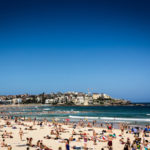COVID-19: The New Restrictions on Gatherings and Movement

In recent weeks, several pieces of rights-eroding legislation have been rushed through state and federal parliaments, and orders made under broad powers contained in existing legislation, which are ostensibly to promote public safety but at the same time give unprecedented powers to law enforcement and other government agencies.
The new (world) order
At 10.20pm on Monday, 30 March 2020 the New South Wales Minister for Health and Medical Research, Brad Hazzard, made the Public Health (COVID-19 Restrictions on Gathering and Movement) Order 2020 (‘the Order’) under the provisions of section 7 of the Public Health Act 2010 (‘the Act’).
The order requires all inhabitants of our state to abide by strict conduct rules and is enforceable under section 10 of the Act which provides that a person who, without reasonable excuse, fails to comply with such a direction faces a maximum penalty of 6 months in prison and/or a fine of $11,000.
The section further provides that any continued failure to comply is punishable by a fine of $5,500, for each day the offence continues.
The maximum penalty for companies is $55,000, and $27,500 for each day the offence continues.
The objective of the order
The state aim of the Order is to give certain Ministerial directions to deal with the public health risk of COVID- 19 and its possible consequences.
So, what are the new rules?
In a broad sense, the Order directs that a person must not, without a reasonable excuse, leave his or her place of residence without a ‘reasonable excuse’.
Restrictions and measures in place in NSW as at 31 March 2020 are as follows:
- You cannot leave your home unless you have a ‘reasonable excuse’ to do so.
- Public gatherings (indoor and outdoor) are limited to a maximum of two people (except for the purposes of work, persons all of whom are members of the same household, wedding which includes no more than 5 people, funeral of no more than 10 people, facilitate a move to new residence including business moving to new premises, providing emergency assistance, or legal obligations such as attending court).
- Restaurants and cafes are restricted to takeaway and/or delivery only.
- Certain non-essential businesses have been ordered to cease trading. This includes casinos (except for the purposes of, if the premises include hotel or motel accommodation, providing that accommodation including by providing food or beverages to persons using that accommodation to consume in their rooms), clubs, places of worship (except for the purposes of conducting wedding or funeral service), amusement centres, indoor recreation facilities, galleries, museums, real estate auctions (attended in person), open inspections (except single person inspections by appointment), markets (except food markets), beauty therapists, spas, nail salons and massage parlours.
- The following places have been directed to close: outdoor playground equipment or gym equipment in a public place and skate parks, public swimming pools, gaming lounges, strip clubs, pubs, gyms, cinemas.
- Funerals are limited to a maximum of 10 people (including the person conducting the service).
- Weddings are limited to a maximum of 5 people (including the marriage celebrant).
- All international travellers arriving in Australia will be quarantined in a hotel for two weeks and will not be permitted to leave their room.
- Occupiers or operators of premises that are outdoor spaces must not allow 500 or more persons to enter or stay on the premises.
- Occupiers or operators of premises that are indoor spaces must not allow 100 or more persons to enter or stay on the premises.
- Occupiers or operators of indoor or outdoor premises must ensure there is a 4 square metre space for each person on the premises.
What is a reasonable excuse?
Under the Order, “a person must not, without reasonable excuse, leave the person’s place of residence”.
The following are considered ‘reasonable excuses’:
- Obtaining food or other goods or services for the personal needs of the household or other household purposes (including for pets) and for vulnerable persons.
- Travelling for the purposes of work if the person cannot work from the person’s place of residence.
- Travelling for the purposes of attending childcare (including picking up or dropping another person at childcare).
- Travelling for the purposes of facilitating attendance at a school or other educational institution if the person attending the school or institution cannot learn from the person’s place of residence.
- Exercising
- Obtaining medical care or supplies or health supplies or fulfilling carer’s responsibilities.
- Attending a wedding or a funeral (weddings are limited to 5 persons which includes the celebrant and funerals to 10 which includes the person conducting the service).
- Moving to a new place of residence (including a business moving to new premises) or between different places of residence of the person or inspecting a potential new place of residence.
- Providing care or assistance (including personal care) to a vulnerable person or providing emergency assistance.
- Donating blood.
- Undertaking any legal obligations.
- Accessing public services (whether provided by Government, a private provider or a non-Government organisation), including
- social services, and
- employment services, and
- domestic violence services, and
- mental health services, and
- services provided to victims (including as victims of crime).
- For children who do not live in the same household as their parents or siblings or one of their parents or siblings—continuing existing arrangements for access to, and contact between, parents and children or siblings.
- For a person who is a priest, minister of religion or member of a religious order— going to the person’s place of worship or providing pastoral care to another person.
- Avoiding injury or illness or to escape a risk of harm.
- For emergencies or compassionate reasons.
What if I live with, or work with, more than 2 people?
Exceptions to the ‘2 person rule’ are gatherings:
- By members of the same household, and
- Which are essential for work and or education.
‘Essential gatherings’
‘Essential gathering’ are also exempt from the ‘2 person rule’.
These are gatherings:
- At an airport that is necessary for the normal business of the airport
- For the purposes of or related to transportation, including in vehicles or at stations, platforms or stops or other public transportation facilities
- At a hospital or other medical or health service facility that is necessary for the normal business of the facility
- For the purposes of emergency services
- At a prison, correctional facility, youth justice centre or other place of custody
- At a disability or aged care facility that is necessary for the normal business of the facility
- At a court or tribunal
- At Parliament for the purpose of its normal operations
- At a supermarket, market that predominately sells food, grocery store or shopping centre (but not a retail store in a shopping centre other than a supermarket, market that predominately sells food or grocery store) that is necessary for the normal business of the supermarket, market, store or centre
- At a retail store (other than a supermarket, market that predominately sells food or grocery store) that is necessary for the normal business of the store
- At an office building, farm, factory, warehouse or mining or construction site that is necessary for the normal operation of the tenants within the building, farm, warehouse, factory or site
- At a school, university or other educational institution or child care facility that is necessary for the normal business of the school, university, institution or facility but does not include a school event that involves members of the community in addition to staff and students
- At a hotel, motel or other accommodation facility that is necessary for the normal operation of accommodation services at that hotel, motel or other facility
- At an outdoor space where 2 or more persons may be present for the purposes of transiting through the place; for example, Pitt Street Mall.
Requirement to self-quarantine for 14 days
From 29 March 2020, all passengers arriving into Australia from overseas have been required to self-quarantine in a hotel for 14 days.
The failure to comply with this direction comes with a maximum prison term of 6 months and/or an $11,000 fine.





